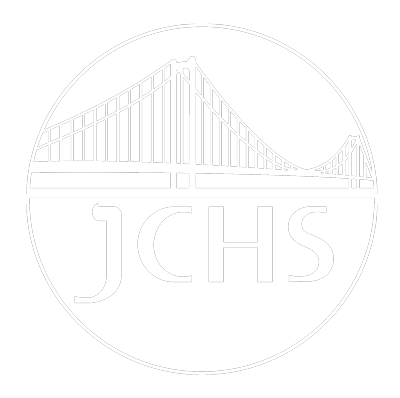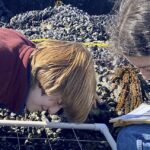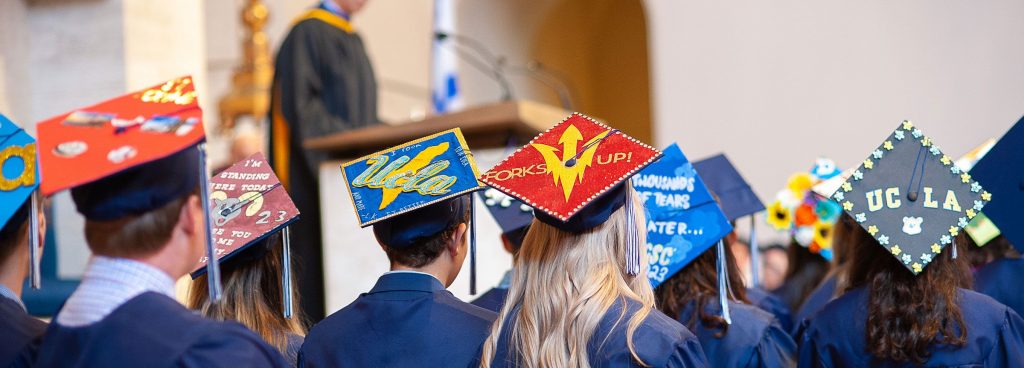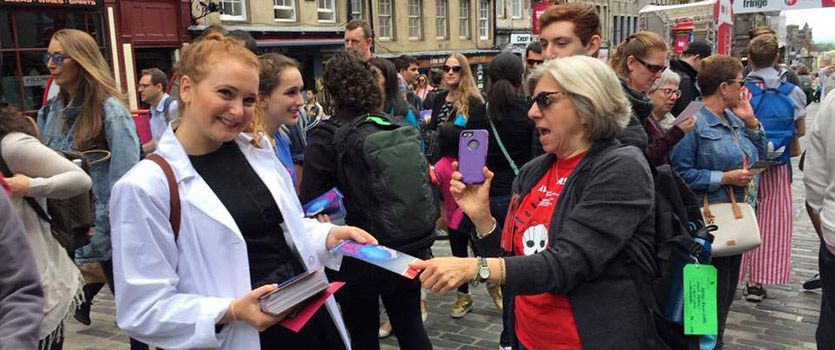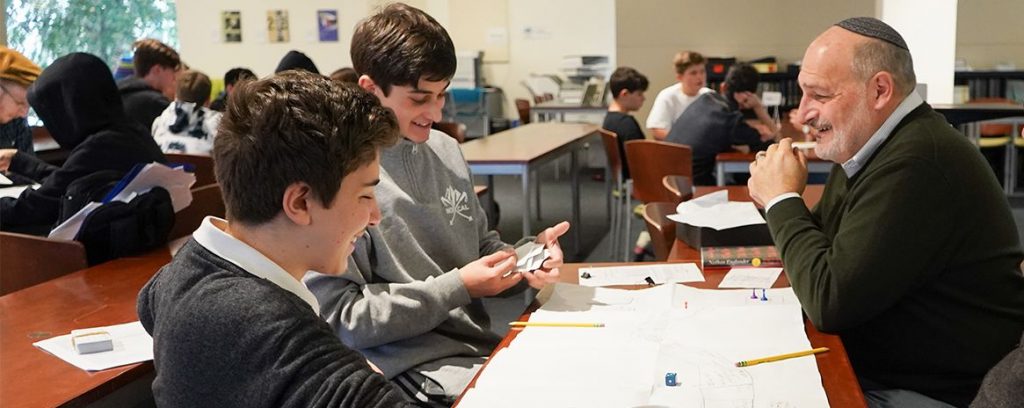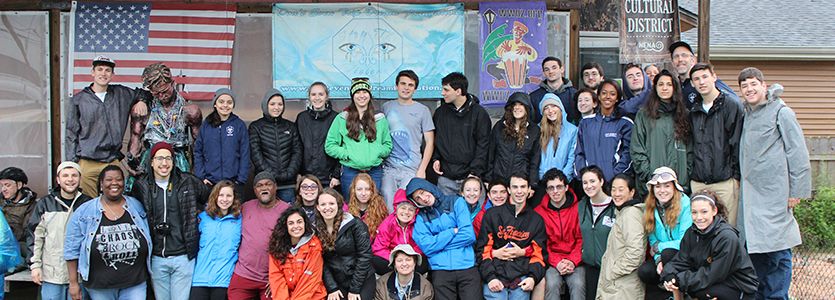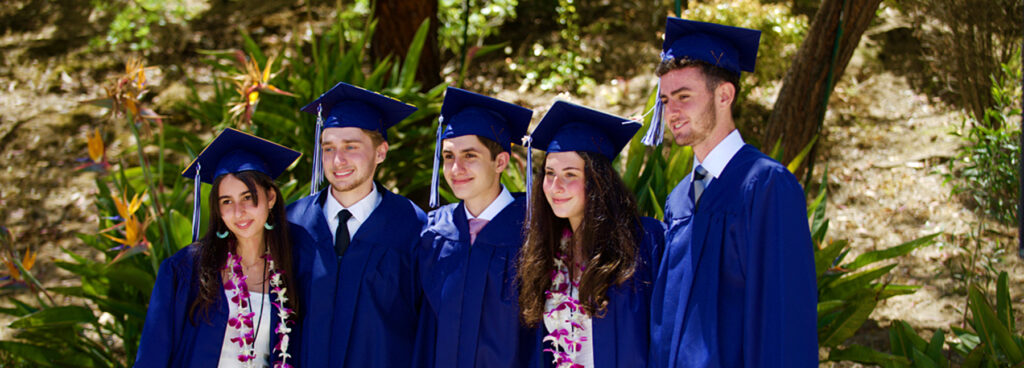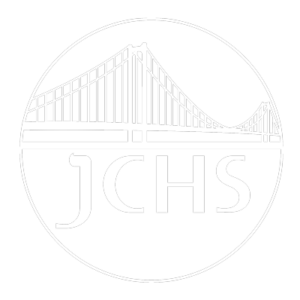Science
The core science sequence encompasses a three-year, inquiry-based program designed to foster the spirit of curiosity and encourage the ongoing pursuit of scientific knowledge.
The goal of the course work is to develop a conceptual framework that students can use to investigate a variety of disciplines. The courses are integrated in that concepts and skills introduced in 9th grade Conceptual Physics are reinforced in 10th grade Chemistry and applied to living systems in 11th grade Biology.
The advanced electives present an opportunity for students to apply their fundamental knowledge of science to a particular area of interest. The ultimate goal is for students to possess sufficient knowledge and confidence to explore the ramifications of modern science in their lives.
The Science Department’s mission is to see each student develop the ability to:
- Explore the process of science
- Examine how models and theories are formed, communicated, tested and changed
- Increase awareness of current areas of research and testing of theories
- Be scientifically literate
- Appreciate and understand the science in their everyday lives
- Apply their understanding of a set of basic scientific principles to new concepts
- Build confidence in their ability to learn science and be willing to think about science on their own
- Read newspaper or magazine articles involving science and be able to understand and willing to think about them
- Differentiate between what makes intuitive sense and what really happens
- Participate in scientific experimentation by doing hands-on learning activities, inquiry based experiments, and student-led demonstrations
- Gain a deep understanding of concepts
- Learn material in depth
- Implement concepts rather than memorize content
- Prepare for advanced science courses at both the high school and college level.
Click on any course name below to learn more.
Science Core Courses
The Conceptual Physics course aims to have students discover physical laws themselves, and be able apply what they’ve learned to situations they encounter inside and outside of class. This course covers topics related to sound, light, motion, collisions, projectiles, and electricity and magnetism. Lab work is the primary mode of instruction. Students make observations in lab, and use them to develop their own mental models of physical laws to describe how the world works. In addition to traditional problems, students are expected to write about physical concepts and apply what they have learned to real world situations. Laboratory skills themselves are a focus, including improving experiments and analyzing different types of data. Projects are also used to emphasize real world applications, including a musical instrument project where students use household objects and principles of both physical laws of sound and music theory to create playable instruments from coconut guitars to PVC pipe pan flutes.
Prerequisite(s): Conceptual Physics
Chemistry aims to develop students’ understanding of the particulate nature of matter, and of the changes in matter and energy that occur during chemical reactions. We will build on many of the skills (like making mental models) developed in Conceptual Physics. Topics that will be covered in this course include matter, atomic structure, the periodic table, chemical bonding, chemical reactions, stoichiometry, gasses, thermochemistry, solids, liquids, solutions, acids and bases, electrochemistry, and organic chemistry. A strong emphasis will be placed on helping students to build comfort in the lab and complete 20+ experiments over the year. Students will also complete self-directed projects on a scientist, element, compound, and reaction of their choice.
Students interested in preparing for AP Chemistry will also study additional topics like ionization energy, molecular geometry of molecules with expanded octets, percent composition, spontaneity, and weak acid/base models.
Prerequisite(s): Chemistry
Biology is a college preparatory lab course. It aims to develop students’ understanding of the fundamental characteristics of life at both the cellular and organismal levels. This course will build on students’ understanding of physics and chemistry as we explore the science of living things. Through an exploration of biochemistry, cells, and genetics, students learn how molecules and energy combine to form and direct all life, and apply these lessons to the study of the human reproductive system. As the class studies evolution, students learn how the logical consequences of differential survival and inherited traits produce the vast diversity of species. We conclude the year with the study of ecology, investigating the complexities of species’ interactions in Serengeti National Park.
This course focuses heavily on building advanced science skills. Students will design investigations, build explanations based on evidence and create models to explain and predict phenomena. In a cross-curricular project with the humanities department, students dive deep into the science and ethics of a gene editing technology, CRISPR, to synthesize an argument that addresses questions like, “Is it ever ethical to create human life” and “When, if ever, would it be ethical to edit the human genome?”
Science Elective Courses
Prerequisite(s): Algebra II, Biology, Chemistry, and Department Approval
Biology is the study of living organisms and systems. How does evolution drive the unity and diversity of life? How do biological systems use energy and molecular building blocks to grow, reproduce, and maintain dynamic homeostasis? How do living systems store, retrieve, transmit, and respond to information essential to life processes? How do biological systems interact, and these systems and their interactions exhibit complex properties? AP Biology is equivalent to a college-level introductory biology class in which students develop the scientific skills and practices necessary to interpret biological data and evaluate evidence. Topics include evolution, cellular processes, energy and communication, genetics, information transfer, ecology, and interactions. Inquiry-based learning and laboratory work are central to this course. Students perform and report on laboratory investigations of enzyme activity, osmosis and diffusion, cell division, bacterial transformation, and transpiration in plants, among other topics. Students also complete a summer assignment to read, analyze, and review a popular biology book of their choice. Please note that AP Biology is a quantitative course. Although neither Statistics nor Pre-Calculus are co-requisite, students not concurrently enrolled in one of these or a higher-level math class should anticipate some additional math work outside of class time.
Please Note: AP courses may require additional meeting times throughout the year.
Prerequisite(s): Precalculus (or concurrent enrollment in Precalculus), Chemistry, and Department Approval
Chemistry is the study of the relationship between submicroscopic atomic/molecular structure and the macroscopic (observable) properties of matter. How do quantities at the atomic and macroscopic scale relate to one another within across scales? How do properties observable at the macroscopic level emerge from atomic and molecular structures? How do these quantities and properties change and rearrange during chemical reactions? How do energy distributions change during chemical reactions, and even drive the reaction itself? AP Chemistry is equivalent to a college-level general chemistry class in which students develop the scientific skills and practices necessary to analyze chemical data and evaluate evidence. Topics include atomic structure, intermolecular forces and bonding, chemical reactions, kinetics, thermodynamics, and equilibrium. Inquiry-based learning and laboratory work are central to this course. Students perform and report on laboratory investigations of chromatography, gravimetric analysis, spectroscopy, rate laws, equilibrium systems, and titrations, among other topics. Students also complete a summer assignment reviewing stoichiometry and other foundational topics from tenth grade chemistry so that we can hit the ground running in the fall. AP Chemistry is a heavily quantitative course. In May and June (after the AP exam), 11th graders in the class will work on one or more fun, chemistry-related topics outside the scope of the AP curriculum.
Please Note: AP courses may require additional meeting times throughout the year.
Open to: 10, 11, 12
Prerequisite(s): Algebra I
This AP Computer Science course offers an in-depth exploration of object-oriented programming, with a strong emphasis on Java language fundamentals, including programming basics, syntax, and program structure. Students engage in comprehensive problem-solving strategies and software design, focusing on algorithm development and the effective use of control structures like loops and conditional statements. A significant portion of the curriculum is dedicated to understanding and implementing data structures such as arrays and array lists, enhancing their ability to process data through efficient algorithms. Additionally, the course delves into the utilization of Java’s standard libraries for various tasks, reinforcing practical programming skills. Theoretical knowledge is applied in a final project where students create a Battleship game, integrating their learning to develop a rudimentary AI engine for computer gameplay, thus consolidating their grasp of programming concepts and object-oriented principles
Students don’t need prior knowledge of a computer programming language to do well in the class, especially if they have strong problem solving skills. However, many students elect to take AP Computer Science Principles first.
Please Note: AP courses may require additional meeting times throughout the year.
Open to: 10, 11, 12
Prerequisite(s): Algebra I
Advanced Placement Computer Science Principles offers a multidisciplinary approach to computer science, using coursework developed at UC Berkeley. The course’s rigorous and rich curriculum aims to broaden participation in computer science, while maintaining a strong foundation in theory. Students code in Snap!, a language that’s easy to use, yet offers powerful high-level tools. Major ideas include abstraction, control structures, list processing, data science, networking, security, digital literacy, and seminar-style debate and free writing on current events, ethics, and the impact of technology on society. AP CSP students submit a portfolio-style independent programming project to the College Board in addition to sitting a multiple choice exam.
This is an introductory course. Students do not need prior programming experience, or math experience beyond Algebra I.
Please Note: AP courses may require additional meeting times throughout the year.
Prerequisite(s): Conceptual Physics, Chemistry, and Biology; Department Approval for AP
Environmental Science is the study of the natural world and human interactions within it. The course is interdisciplinary, building on concepts in physics, chemistry, biology, earth science, and mathematics. The general scope of the course is investigating how the earth works, how living things interact on earth, the impacts that humans have on their environment, and the choices available to humans today regarding how we will treat our environment in the future. Students grapple with questions such as: How many people can the planet support? How do our energy needs and our use of fossil fuels impact life on earth? And how can we produce and use energy more sustainably?
The course includes labs and hands-on activities, ongoing research projects and presentations. Specifically, students collect and assess air, soil and water samples, appraise and calculate the value of trees and build skill in the application of appropriate mathematical relationships to assess and solve problems.
Please Note: Students may choose to take this course as an AP class. AP students should expect more rigorous and frequent homework assignments and more challenging tests and quizzes.
Prerequisite(s): Conceptual Physics, AP Calculus, AB or BC (or concurrent enrollment in AP Calculus, AB or BC) and Department Approval
This deep and narrow course in Newtonian Mechanics covers kinematics, dynamics, momentum, energy, projectile motion, rotation, oscillation, and gravitation. The course is focused on exploring natural physical phenomena and solving problems, especially those involving calculus. It is designed to contain the same course material as the typical calculus-based introductory physics course and laboratory program offered at many colleges and universities. Students examine many real world problems that would otherwise be too difficult to solve by other means. Laboratory skills are also a focus, with an emphasis on student-led experimental design, and data analysis techniques such as linear regression and error propagation.
Please Note: AP courses may require additional meeting times throughout the year.
Open to: 10, 11, 12
Prerequisite(s): Geometry (or concurrent enrollment in Geometry)
This course focuses on 3D modeling and CAD (computer aided drafting) software for design applications in engineering design and manufacturing prototyping. This is a good course for students who are interested in digital asset creation, product design, engineering, manufacturing, and/or related fields. Students taking Engineering CAD will be introduced to 3D design using advanced 3D modeling and visualization technologies such as Fusion 360, SolidWorks, and others. Students will be introduced to the idea of creating 3D models that are suitable for 3D printing, and will learn about the different models and drawing specifications that are required by the different manufacturing technologies available today. Students will manufacture their model prototypes using a 3D printer and/or a CNC Laser Cutter & Engraver. Additionally students will learn how to present their design in a contextual virtual or augmented reality environments.
Open to: 9
In the first semester, students investigate the structure and history of computing, first through cryptography: codes and ciphers, from Julius Caesar to the Enigma Machine and the birth of modern computing. Then, we study logic, solving puzzles and learning the rules of Boolean algebra. After some time practicing binary arithmetic, students are ready to start programming with logic circuitry and build a miniature CPU, which can do basic math and store data. Next, we take apart laptops with screwdrivers in order to study the innards of computers, and round out the semester by studying modern cryptography and quantum computing.
The second semester looks at computer networks and a branch of math called graph theory, which we use for everything from solving mazes, to chess puzzles, to Sudoku, to coloring maps, analyzing languages, and more. In addition to puzzles and social games which teach networking algorithms, we also learn about computer networking and security, including typing commands, visiting the server room, checking the network security at students’ homes, and more.
In addition to code, this course teaches algorithms through many modalities, including games, puzzles, and projects. This provides a strong foundation for advanced computer science study, and exposes students to the many exciting subdisciplines and famous algorithms of computer science, as well as the history of technology. This course is ideal for people who know nothing about computers, or seasoned coders.
Students do not need any prior programming experience. Foundations of Computer Science can be followed by AP Computer Science Principles, AP Computer Science A, and/or Robotics & Engineering.
Please Note: This is an introductory course open to all ninth graders, which must be taken in lieu of Past in the Present (ninth grade history). It includes a research paper on the ethics of facial recognition technology, which corresponds to an equivalent project in Past in the Present.
Open to: 12
Prerequisite(s): Biology, Chemistry
This is a lab-based course in which students investigate the structure and function of the human body, learning how their own bodies work and in developing “body literacy” that will serve them throughout their lives. Body systems studied will vary based on student interest but may include the nervous system, the musculoskeletal system, the cardiovascular system, the respiratory system, the endocrine system, the urinary system, the digestive system, the immune system, and the male and female reproductive systems. Dissections may feature heavily in the lab portion of this class, so students should consider their comfort with that when enrolling. Students will conclude the year by investigating the physiology of a particular disease of interest as well as the medical and social implications of this disease. This is an ideal course for students interested in pursuing a clinical health career such as medicine, nursing, dentistry, pharmacy, or physical therapy.
Open to: 10, 11, 12
Prerequisite(s): Algebra I
Designed for the innovative and curious, this class primarily centers around the exciting First Technology Challenge (FTC). Students will split into two collaborative teams – the builders and the programmers. The builders bring designs to life, using advanced tools like 3D printers and laser cutters, along with OnShape CAD for design. They craft intricate robots, complete with mechanisms like intakes and shooters. Meanwhile, the programmers breathe life into these creations, using Android Studio to write Java code for autonomous navigation and gamepad control. Beyond robotics, the course delves into practical applications of mathematics, including regression and dimensional analysis to complete an activity that simulates the post-WWII analysis of the Trinity Test, where British researchers determined classified information about the Manhattan Project by using a clever application of mathematics.
Students don’t need prior programming knowledge, although most students will be introduced to at least some programming. Those students with prior programming knowledge will also have the opportunity to do more extensive programming tasks.

Click here to view the complete Curriculum Map
Biology Experiment: Measuring caloric content of food
